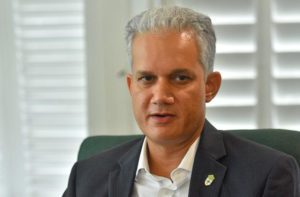For Guyana to be successful in the oil and gas industry, the oil must be kept offshore with no thoughts about an oil refinery, at least for the first years and revenue from the oil sales should be used to develop the infrastructure of the country, according to the Presidential Adviser on Petroleum, Dr Jan Mangal.




